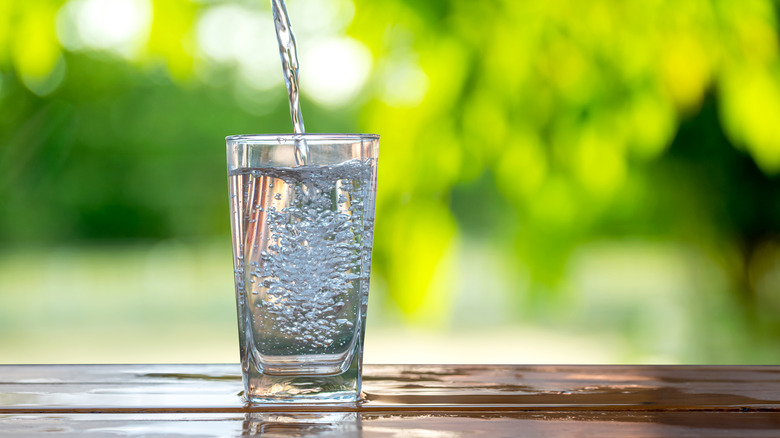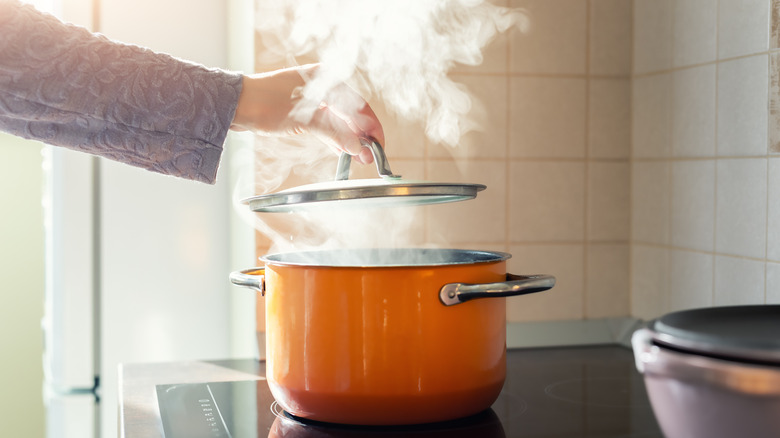Is It Worth Using Distilled Water To Cook?
Water is vital to our bodies: It regulates body temperature, lubricates joints, and flushes waste products through the kidneys. Per the Mayo Clinic, it's recommended we consume up to 3.7 liters of water daily for optimal health. Our hydration station options include tap, bottled, or distilled.
Distilled water is distinctly different from the stuff that comes out of the tap or from the bottle. Food Network explains that distilled water is purified through a steam process that removes minerals from the water. The distilling process is simple, and one you can actually do from home, according to CNET. Simply boil water and capture the vapor. Those vapors condense back into water while leaving the minerals behind.
Insider points out that distilled water is distinctly different from purified water, which removes through filtration contaminants like bacteria and chemicals that might be lurking in tap water. Common purified methods range from simple, like carbon filtration (i.e., the Brita in your fridge), to complex whole-house systems that use a mix of filtration methods like carbon, reverse osmosis, and UV (via Bob Villa).
Distilled water is often suggested for use in appliances like irons and steamers because of the water's purity. With the minerals removed, there is no scale to contend with, which extends the life of the appliance. If you use a humidifier, distilled water is a must since minerals can promote bacterial growth, as reported by TIME.
Since distilled water is, essentially, hyper-purified, does this mean it's healthier, and should you be cooking with it?
Distilled water and cooking
While it is perfectly safe to consume distilled water — and, if you are immunocompromised, it may be the safest option — you are better off sticking with purified tap or spring water, especially for cooking.
The National Center for Complementary and Integrative Health says minerals like magnesium, calcium, potassium, and more are needed for optimal health. These essential minerals — also called electrolytes — are found in our drinking water. Because distilled water removes all minerals, your body might lack the ones it needs, particularly if your diet is not rich in them.
Cook's Illustrated claims that distilled water, lacking its own, leeches essential minerals out of vegetables, lowering their nutrient value. This is backed up by research, specifically a 2014 study published in the Medical Journal Armed Forces India, which saw an up to 60% decrease in calcium and magnesium (and even more for other minerals) in foods cooked in soft (i.e., non-mineralized) water. By comparison, the nutrient loss was significantly lower for food cooked in hard water.
According to The Spruce Eats, for a number of reasons, you should steer clear of distilled water when cooking unless you have no alternative. As Food Network explains, most of the recommended uses for distilled water have nothing to do with consuming it.
With this said, should you decide to cook a recipe with distilled water, don't do so with aluminum pots or pans (via Cook's Illustrated). Distilled water, per The Spruce Eats, will pull metal ions away from aluminum and cast iron cookware, which will not only corrode the cookware, but impart a metallic taste to your cooked food.

